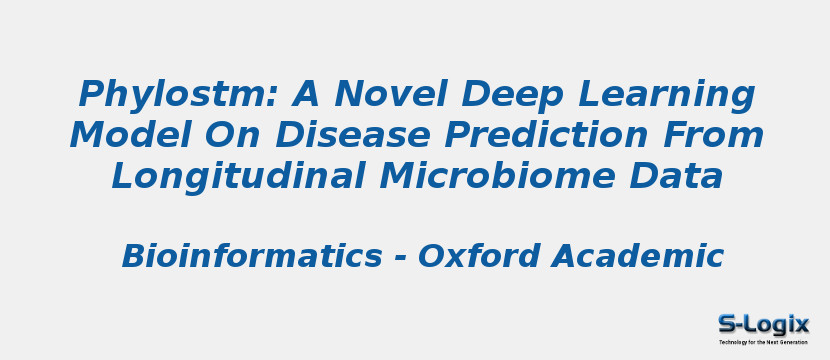Research Area: Machine Learning
Research shows that human microbiome is highly dynamic on longitudinal timescales, changing dynamically with diet, or due to medical interventions. In this article, we propose a novel deep learning framework ‘phyLoSTM’, using a combination of Convolutional Neural Networks and Long Short Term Memory Networks (LSTM) for feature extraction and analysis of temporal dependency in longitudinal microbiome sequencing data along with host’s environmental factors for disease prediction. Additional novelty in terms of handling variable timepoints in subjects through LSTMs, as well as, weight balancing between imbalanced cases and controls is proposed.We simulated 100 datasets across multiple time points for model testing. To demonstrate the model’s effectiveness, we also implemented this novel method into two real longitudinal human microbiome studies: (i) DIABIMMUNE three country cohort with food allergy outcomes (Milk, Egg, Peanut and Overall) and (ii) DiGiulio study with preterm delivery as outcome. Extensive analysis and comparison of our approach yields encouraging performance with an AUC of 0.897 (increased by 5%) on simulated studies and AUCs of 0.762 (increased by 19%) and 0.713 (increased by 8%) on the two real longitudinal microbiome studies respectively, as compared to the next best performing method, Random Forest. The proposed methodology improves predictive accuracy on longitudinal human microbiome studies containing spatially correlated data, and evaluates the change of microbiome composition contributing to outcome prediction.
Keywords:
Author(s) Name: Divya Sharma, Wei Xu
Journal name: Bioinformatics
Conferrence name:
Publisher name: Oxford University Press
DOI: 10.1093/bioinformatics/btab482
Volume Information: Volume 37, Issue 21, 1 November 2021, Pages 3707–3714
